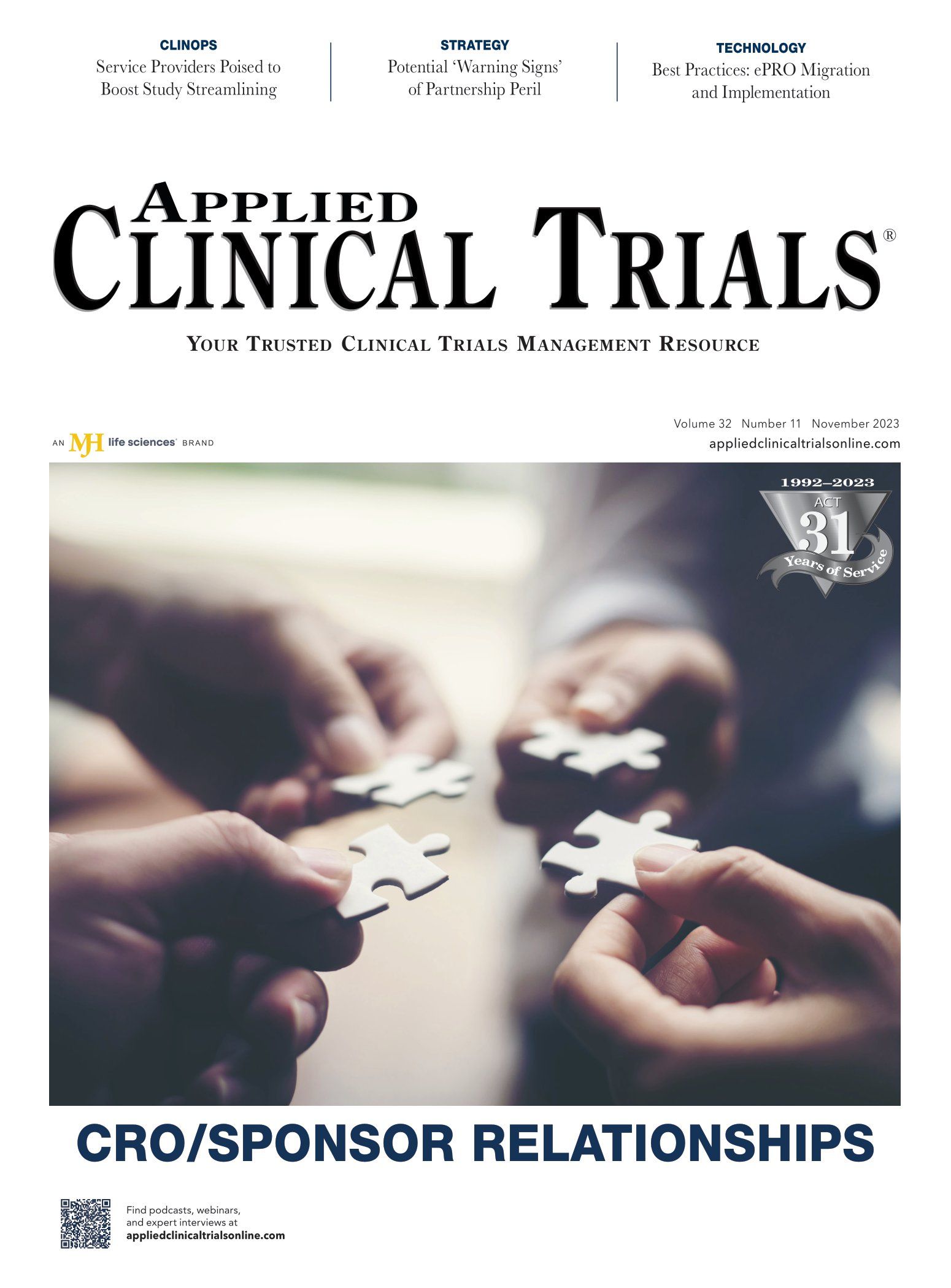The Two Guiding Principles of Optimal Trial Delivery
Trust-based relationships form the foundation for successful trial management.

Clinical research, like raising children, often requires a village. It involves numerous stakeholders, from sponsors and sites to participants and vendors, all with their roles and responsibilities. With more players come complexities, but the fundamental principles of transparent communication and goal alignment remain vital for successful trial management. Trust-based relationships form the cornerstone, underpinned by early expectation setting, goal congruence, frequent communication, and a shared commitment to mitigating risks.
Credibility is a must in all business relationships. In sponsor-CRO collaborations, credibility-building starts in the proposal and bid defense stages. Commitments made during these early discussions set the stage for trial setup and execution. Sponsors choose CROs and vendors based on their perceived ability to deliver on these commitments. While there’s a temptation to present a rosy picture to secure the work, overpromising is risky and can erode credibility. Clinical research is inherently unpredictable, and aligning expectations and goals among stakeholders, with frequent progress assessments, facilitates early risk identification and collaborative recalibration.
Many sponsor-CRO relationships start with foundational assumptions about the scope of work, timelines, and costs. These assumptions should be rigorously tested, informed by data and experience, and refined to establish the collaboration’s baseline goals. Goals and milestones often have interdependencies. For instance, CROs depend on sponsors to provide the final protocol before site initiation, while sites need ethics committee approval and executed contracts to activate the study. Seemingly minor delays in any of these activities can lead to significant delays. Alignment on critical milestones and frequent progress reviews, therefore, enable early issue identification and timely resolution.
Clinical trials seldom go exactly as planned. Delays in study start-up, such as site activation delays, can impact patient enrollment. Therefore, daily comparisons of actual data to assumptions help identify gaps, triggering a more in-depth examination of variances, providing process improvement opportunities and allowing for course correction.
Data and technology are also equally crucial for setting goals, planning, and tracking metrics. Accessible data for all stakeholders ensures transparency and allows for early intervention.
While we recognize the importance of transparent communication, shared commitment, goal alignment, and joint risk mitigation, there are often friction points that can disrupt active collaboration. Usual conflicts that occur are around timelines, enrollment assumptions, and project finances—and misaligned expectations are at the root of these issues. Project timelines are affected by various factors, including site identification, regulatory reviews, site contracts, site activations, enrollment, and data collection. Despite best efforts, some phases take longer than expected, leading to challenges. Project finances can be a point of dispute. Some changes in scope can be acceptable, However, budget increases due to incorrect assumptions, such as enrollment delays or site additions, are harder to justify when the scope hasn’t changed. Frequent communication, transparency around assumptions, and continual metric evaluations prevent surprises and eases these discussions.
Not all stakeholders share the same motivations, experiences, resources, or financial backing. Understanding these differences is crucial for setting the right expectations. Small biotech companies with limited resources may make requests that significantly affect the study’s conduct and budget, while larger sponsors may be more accommodating. Key opinion leaders in large academic institutions might be desirable, but their lengthy start-up timelines could be a hurdle. A CRO may not fully grasp the budget constraints of a small-sized sponsor—and recognizing these distinctions is vital.
In the complex landscape of clinical trials, strong relationships among diverse stakeholders are mission-critical. Aligning on goals, setting expectations, proactively addressing challenges, and consistently evaluating progress fosters transparent communication and highly collaborative relationships that can navigate the challenges that arise on the road to success.
Rhonda Henry, president of biopharma, Emmes
